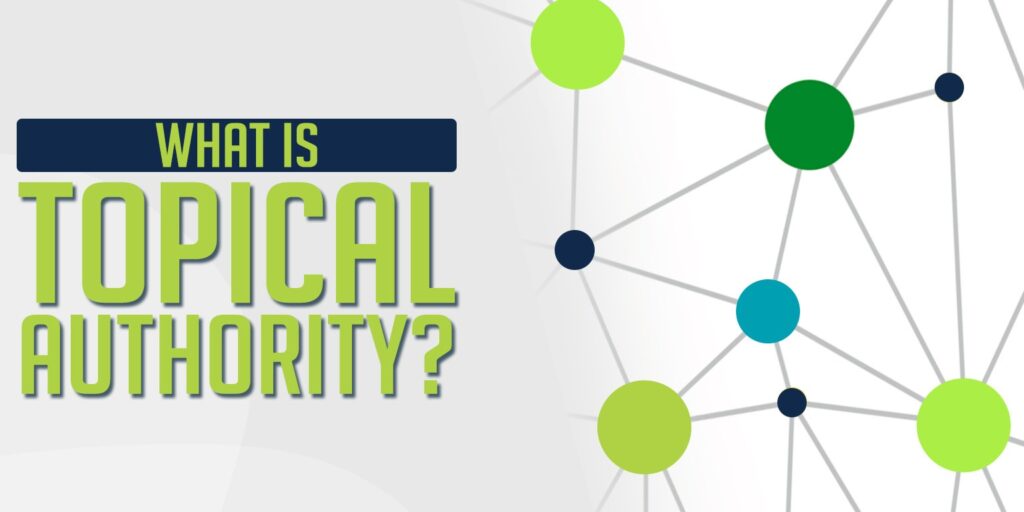In the ever-evolving world of SEO, topical authority has emerged as one of the most important signals for ranking higher in search engines, especially Google. It’s no longer just about keywords; it’s about how much trust and expertise you have around a specific subject.
So, what exactly is topical authority? How does it impact SEO? And more importantly, how can you build it?
Let’s break it all down.
What is Topical Authority?
Topical authority is the level of expertise and trust a website (or brand) earns in a specific subject area by consistently publishing high-quality, relevant, and interconnected content.
Think of it like this:
If your website covers one topic deeply instead of writing shallow content on many topics search engines start seeing your site as a trusted source on that subject.
🧠 Example:
- A general blog might write about fashion, tech, food, and travel but will rarely become an authority in one niche.
A site like Moz that only talks about SEO and digital marketing has built massive topical authority in that space.
Why Topical Authority Matters for SEO
Google’s algorithm has matured. It now rewards depth of content, user satisfaction, and overall site expertise.
Here’s how building topical authority helps your SEO:
- Higher Rankings: Authority = trust. Google prefers ranking trusted sources higher.
- Better Crawlability: Interconnected topics make it easier for bots to understand your site structure.
- Increased Dwell Time: Users stay longer when they find comprehensive content.
More Backlinks: In-depth, helpful content naturally earns more links over time.
How to Build Topical Authority (Step-by-Step)
Let’s dive into a practical framework you can use.
1. Choose a Niche You Want to Dominate
Before building authority, you must identify your core topic cluster. It should:
- Align with your business/services.
- Have enough depth for 15+ content pieces.
- Solve real user problems.
Example Niches:
- Local SEO for Australian Businesses
- Vegan Baking Recipes
- Sustainable Interior Design
2. Conduct Keyword Research with a Topic Cluster Approach
Forget targeting just individual keywords. Instead, think in clusters:
- Pillar Topic: Broad content that targets a high-level keyword.
- Cluster Topics: Narrow, related articles that support the main piece.
Example for “Website Design in Australia”
- Pillar: The Ultimate Guide to Website Design in Australia
- Clusters:
- Best Website Design Agencies in Darwin
- Cost of Website Design in 2025
- UX Tips for Small Business Websites
Tools to help:
- Semrush Topic Research Tool
- AlsoAsked
- Google’s People Also Ask
- AnswerThePublic
3. Create a Content Hub
A content hub is a central page (like a guide or pillar article) that links to all cluster articles. This internal linking:
- Helps Google understand relationships.
- Passes link juice.
- Keeps users engaged.
Bonus tip: Use schema markup and breadcrumbs to help with indexing!
4. Maintain Consistency & Depth
Google wants to see ongoing topical coverage not a one-off article. To build authority:
- Publish regularly within the niche.
- Update outdated posts.
- Cover beginner to advanced-level content.
Content Types to Include:
- How-to guides
- Comparison posts
- Case studies
- FAQs
- Glossaries
5. Use Internal Linking Strategically
Internal links guide Google through your site and help distribute page authority.
Best practices:
- Link cluster pages back to the pillar page.
- Use keyword-rich anchor text.
- Avoid orphan pages (pages with no internal links).
6. Get Authoritative Backlinks
Topical authority + backlinks = SEO gold.
Ways to earn backlinks:
- Guest posting on niche-relevant sites.
- Creating stats-based content.
- Building infographics that others want to use.
- Collaborating with influencers or agencies.
7. Showcase E-E-A-T (Experience, Expertise, Authority, Trust)
Google uses E-E-A-T to evaluate quality. To boost topical authority:
- Add author bios with credentials.
- Show customer reviews and testimonials.
- Include clear contact info.
- Publish original data or expert interviews.
Real-Life Example: GlobalGenie.com.au
Let’s say you’re running a web design business like GlobalGenie in Australia.
To build topical authority, you might:
- Create a pillar post: Complete Guide to Website Design for Australian Businesses
- Add supporting articles like:
- Top Website Design Trends in Australia (2025)
- How Much Does a Website Cost in Australia?
- Best CMS Platforms for Aussie Startups
- Link all of them together.
- Add case studies of real Australian clients.
- Earn local backlinks from directories and news sites.
Before long, you’re not just a business you’re the go-to expert in your niche.
Tools to Help You Build Topical Authority
- Keyword Tools: Ahrefs, Semrush, LowFruits, Ubersuggest
- Content Planning: Notion, Trello, Surfer SEO
- Internal Linking: Link Whisper (WordPress), Yoast SEO
- AI Writing Help: ChatGPT, Jasper.ai (use responsibly!)
- Analytics: Google Search Console, GA4
Final Thoughts
Topical authority isn’t built overnight but it’s worth every bit of effort.
If you want your website to rise above the competition, build long-term trust with search engines, and turn readers into customers, focusing on one niche and going deep is the way forward.
Key Takeaway:
The more helpful, relevant, and interconnected your content is in one topic area, the more Google will recognize you as an authority.
Want help building topical authority for your business or blog? Let’s chat I can help you strategize your next content cluster like a pro.
